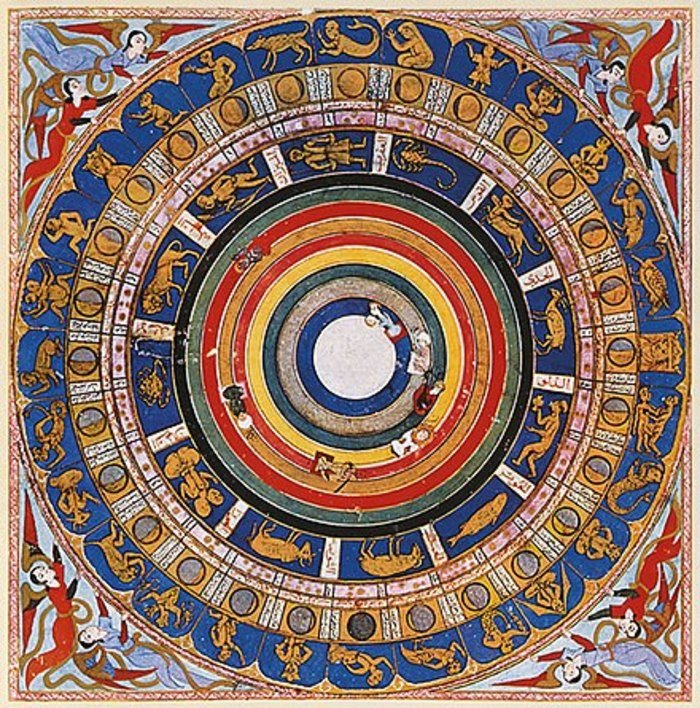
In a recent article in StepFeed, journalist Razan Mneimneh makes the point that astronomy and astrology rose together in the Middle East and later spread to ancient Greeks and Romans, noting that both fields are “inter-related” as “astronomy studies the positions, motions, and properties of celestial objects while astrology delves more into how these movements affect people and events on our dear planet.” And most importantly, according to Mneimneh, both fields have “much importance to the Muslim world.”
For starters, she continues, “While Europe was in an intellectual coma due to the suppression of secular education by the church during the 13th century, the Islamic empire was entering its own Golden Age, relying upon knowledge of the constellations to make timely calculations for prayers and fasting. Medieval Muslims had to study celestial bodies to make accurate guesses of the direction of the Kaaba (which Muslims face while praying) and predictions on when Ramadan would arrive…
Muslims may be surprised to find out that astronomical observatories were built in Iraq very early on and were used to study the movement of the stars and neighboring orbiting planets. Subsequent models were later built in Iraq and Iran, way before the telescope was even invented…
One cannot talk about Muslims and astrology without mentioning the Ottomans. Astrologers were deeply rooted in Ottoman society during the rule of Sultan Mehmet Al-Fatih, or Mehmet the Conqueror, who conquered Constantinople (modern-day Istanbul) and brought an end to the long-reining Byzantine Empire when he was just 21 years old. It is said that during his reign, mathematics, astronomy, and astrology reached their peak, as he would regularly invite and assemble scholars from all over the world to discuss these issues and advance their studies…
Most Muslim scholars today make a clear distinction between astronomy and astrology, considering the former lawful for being used in the direction of prayer and the sighting of lunar months. Astrology, on the other hand, is believed to be based on illusions and considered haram (unlawful) for predicting the unknown, which only Allah (God) knows.”



